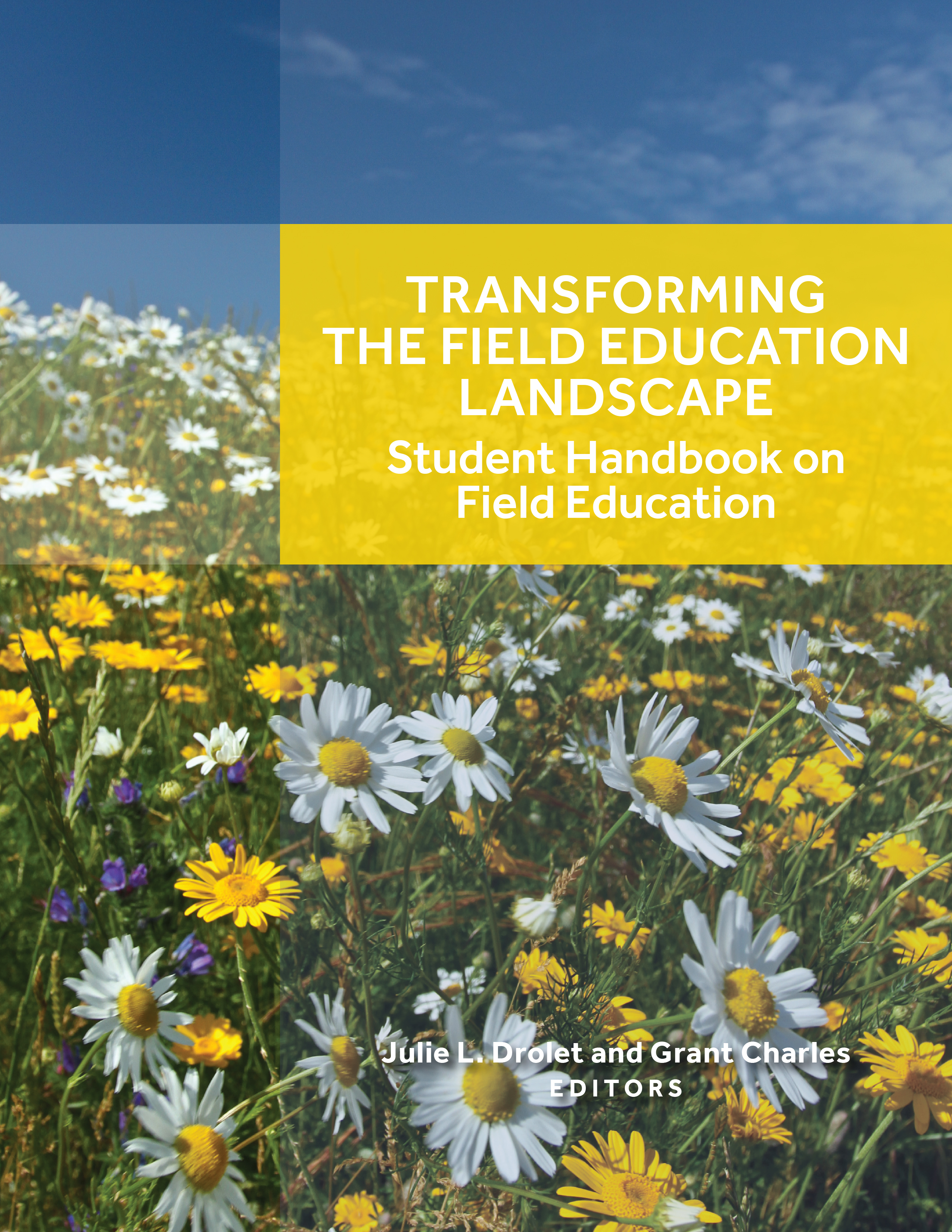
Transforming the Field Education Landscape: Student Handbook on Field Education
Edited by Julie L. Drolet and Grant Charles
$64.99 CAD / $64.99 USD (T)
320 pages, illustrations, worksheets
Paperback: 978-1-77385-558-5
Epub: 978-1-77385-561-5
Library PDF: 978-1-77385-560-8
February 2025
Field education has long been an integral and valuable component of the social work curriculum for students. Field is the place where students integrate their classroom learnings about core social work theories, principles, values, and ethical behaviors into practice. It is recognized as the signature pedagogy of social work education. Transforming the Field Education Landscape: Student Handbook on Field Education is designed to accompany social work students in their field education journey as they move towards becoming practitioners.
It has become apparent in recent years that there is an increasing need to develop new ways of conceptualizing and actualizing field education in response to a dramatically changing academic and practice environment. Our social environments have become much more complex and as a result students are being called upon to address this new reality in their field experiences as they prepare for practice. In addition, social workers are increasingly involved in remote service delivery. Advances in technology are making services more accessible through the use of e-counselling, e-therapy, and videoconferencing options. Many social work students have experienced and will continue to experience practicum placements that involve remote or hybrid models of field learning and/or service delivery. Collectively these demands and changes mean that the way field education is structured and delivered needs to change.
This first open access undergraduate and graduate level field education handbook aims to equip students with a better understanding of the changed environment for social work practice and policy. The Handbook is focused on timely and important topics in social work practice and field education such as anti-racism, anti-colonialism, equity, diversity, inclusion, health placements, interprofessional practice, remote field instruction and supervision, self-care and wellness, trauma- and resilience-informed practice, practice research, spirituality, and the transition of students from school to work. The Handbook offers several unique features by focusing on how to guide students to address critical challenges in social work practice.
The Handbook is of relevance to the current and future generation of social work students, scholars, practitioners, and policy makers. Throughout the Handbook, social work scholars, field educators, collaborators and practitioners in the book offer new insights, practice experiences, case studies, and reflections that offer potential to transform student learning in social work field education. The Handbook advances a transformational approach that will enhance student learning in practicum by accompanying them in their field education journey by creating new understandings of field education.
Julie L. Drolet is a professor in the Faculty of Social Work at the University of Calgary and director of the Transforming the Field Education Landscape (TFEL) project. She is an internationally recognized expert in the field of social work, and her research focuses on field education, disaster social work, social development, and sustainable development.
Grant Charles is associate professor in the School of Social Work and an affiliated faculty with the Division of Adolescent Health and Medicine in the Department of Pediatrics with the Faculty of Medicine at the University of British Columbia.
Introduction: Student Handbook on Field Education
Julie L. Drolet and Grant Charles
1. Tips for Starting a Field Practicum
Kelly Allison and Antoine Coulombe
2. Making Space for Wellness in Field Education
Sherri Tanchak, Patricia Samson, and Julie L. Drolet
3. Trauma- and Resilience-Informed Practice for Self-Care Among Social Work Students
Evalyna Bogdan and Elaine Miller-Karas
4. Remote Field Instruction and Supervision
Eileen McKee, Jenna Nieves, Kelly Allison, Cyndi Hall, and Shella Zagada
5. Integrating Research into Field Education – Beginning with your Learning Contract
Sheri M. McConnell and Melissa Noble
6. Research As Daily Practice as an Agency Asset
Sally St. George and Dan Wulff
7. Maneuvering the Macro: A Guide to Macro-Level Field Placements for Social Work Students, Field Instructors, and Field Liaisons
Julie Mann-Johnson, Annie-Marie McLaughlin, Brenda Vos, and Maddie Wandler
8. Developing a Theoretical Framework for Practice
Heather I. Peters
9. Striving for Equity, Diversity, and Inclusion in Social Work Field Education: From the Personal to the Political
Emmanuel Chilanga and Jill Hanley
10. Addressing Discrimination Against Minority Groups in Social Work Practices and Field Education
Saleema Salim
11. Becoming a Spiritual Influencer Through the Heart and Soul of Field Practice
Heather M. Boynton and Indrani Margolin
12. Advancing Social Work Field Education in Healthcare
Patricia L. Samson, Janet McFarlane, Debra Samek, Hilary Nelson, and David B. Nicholas
13. Interprofessional Education and Practice in Social Work Field Education
Kelly Allison and Grant Charles
14. The Transition From School to Work, From One Work Setting to Another: Guided by Curiosity
Karen Lok Yi Wong
Conclusion: Transformations and Transitions in Field Education
Grant Chalres and Julie Drolet